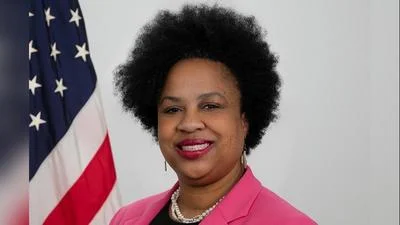A property tax freeze proposal pushed by Democrats failed to pass the House on Wednesday after a contentious debate and mixed responses from Republicans, including Rep. David Harris (R-Arlington Heights).
“To use the word 'freeze' is inappropriate because it is possible that a property taxpayer could indeed see a higher bill one year than they did a previous year,” Harris said. “Is this bill perfect? No. Would we like to see some other provisions in here that the governor has suggested? Yes. But at the same time, there is some modification. It is four years, and it is a tough bill. I’m telling you I’m hearing from my districts, and they’re not real excited about this at all.”
Democrats called SB484 a compromise because it caters to several Republican demands, including a four-year freeze instead of two, but also contains exclusions: Chicago is exempt from the freeze, as are counties and municipalities that uses property tax revenue to pay off pension debt.
Many Republicans found the exclusions unacceptable.
Rep. Steven Andersson (R-Geneva) argued that negotiations are ongoing and a vote on the bill would jeopardize the process.
“I’m telling you we can’t do this,” Andersson said. “We can’t vote in good conscience on this.”
Property tax reform is a top issue for Gov. Bruce Rauner, who has vowed to veto any budget plan without property tax reform. The stalemate between Democrat and Republican lawmakers on the budget and reforms has left Illinois struggling for two years without a true spending plan, forcing many vital services and programs to make drastic fiscal changes.
Harris supported SB484 in the hopes of getting a budget passed, he said.
“If this is what it takes … whether or not this is the final bill -- and I hope that perhaps that it isn’t and negotiations continue – but if this is what it takes to help get us to a budget, then I think we really seriously need to look at voting 'yes' on the bill,” Harris said. “I don’t think it’s as bad in its overall composition, even though it could be somewhat better. I don’t think it’s as bad to deserve a 'no' vote on its face. I encourage you to look at it very carefully. I’m comfortable voting 'yes.'”
The mixed reaction to the bill followed it through the voting process, where it failed 59-46.






 Alerts Sign-up
Alerts Sign-up